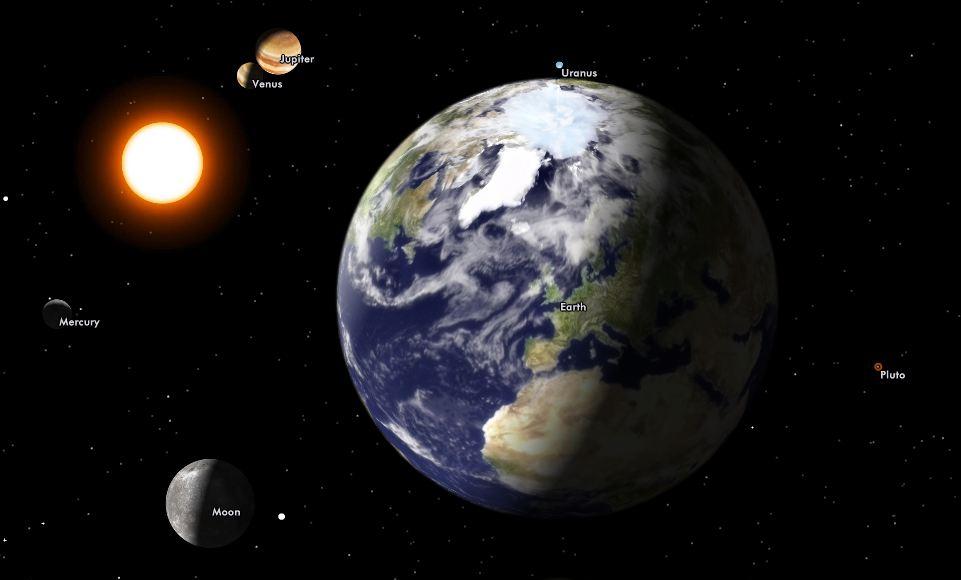The Partisanship of Climate Denial

Earlier today Chris Mooney posted an off-air response to S.E. Cupp’s commentary on his appearance yesterday on MSNBC (video embedded below). The purpose of the interview was to discuss his new book The Republican Brain, yet the exchange quickly derailed into a criticism of climate science and scientists in general. In recent decades, the populist discrediting of science has overwhelmingly originated from the conservative camps. A study from the American Sociological Review found that since 1974 conservative denial of science has increased from 52 to 65%.
The long and storied controversy over global warming has produced a rather diverse tapestry of views from those unsatisfied with the findings we uncover by studying our world. The statistic above is most troubling. Even as evidence for the two most frequently controversial scientific theories—global warming and common descent—continues to stack, conservative trust in science is monotonically declining based on surveys from the last four decades.
S.E. Cupp targets climate science as a basis for conservative denialism, specifically citing the CRU study at the University of East Anglia as if it denotes the death knell for climate science. For those not familiar with this specific controversy, which climate skeptics have acrimoniously dubbed “Climategate”, the Climatic Research Unit (CRU) of East Anglia in Great Britain came under fire after the release of questionable emails between the research teams. After five in-depth investigations, these emails and the CRU team’s research were questioned and examined rigorously but found culpable of no wrongdoing or fraudulent misconduct. The claims against the CRU study revolved mostly around issues of data transparency rather than authenticity, namely that the team could have done more to provide timely access to the data. However, CRU’s data and conclusions were found innocent of any unethical tamperings, were verified by the peer-review process and were consistent with data produced by other independent studies, including NOAA and NASA’s GISS.
It seems the only defense for science deniers at this stage is to seize upon raised instances of wrongdoing or questionable conduct in the scientific community. It’s as if a single instance of ill-advised behavior invalidates an entire body of science. We call this the exception fallacy. If the world were truly to operate in this manner, we would still be in the Dark Ages. If we were to rewind the wheels of time, and Galileo was found to have fudged his numbers in support of heliocentrism, it doesn’t follow that geocentrism is true. In the same way, even if the researchers at East Anglia were guilty of dishonest manipulation of the data (which, again, they were not), that doesn’t render the entire field of climate science null and void.
Mooney attempts to explain this during the interview, but there’s only so much one can say in 30-second sound bites. What’s important to keep in mind is there’s a herculean gap between blind trust in science and rational trust in science.
I’ll tinker with an analogy that’s been used in the past. Suppose that tomorrow a scientist, regardless of prior reputability, puts forth a theory that the moon is made exclusively of green cheese rather than the magnesium iron silicates to which we currently credit its geologic composition. The appropriate response to such a claim is unmitigated skepticism, not only because of the theory’s prima facie absurdity, but because there is just a single person or entity propounding it. But then suppose the research and data which guided the scientist to his or her conclusion are validated through the process of peer review. Next further suppose that additional, unaffiliated studies, including ones that sample the moon’s outer surface and mantle, also find the “green cheese” theory to be true, that what we originally thought was iron silicate was actually a type of green-colored cheese. As time progresses, more and more corroborating evidence pours in from separate groups in a number of scientific disciplines, all of which deliver a single consistent conclusion. To reject the theory at this point is to succumb to blind irrationality. Indeed, there exists a threshold of incredulity beyond which continued skepticism bleeds precariously into negligence of truth.
The “green cheese” theory, just like any other, would acquire credibility to the extent it acquired empirical support. A body of science like global warming is increasingly bolstered both by the independent attestation of unaffiliated research teams and the absence of falsifying information that would give us cause us to doubt it. The lockstep consistency among a comfortable number of global, regional and local climate studies hinges unequivocally on human-caused climate disruption.
Rather than clinging to anecdotal hearsay or personal objections, science deniers should instead seize upon the independent lines of evidence which concertedly ratify the truth claims of science. Extricated from political debate and internal appeals, this is the core tenet of science and the engine of progress. When rhetoric has long faded, the science still remains. Or as Neil deGrasse Tyson has put it, “That’s what’s so great about science; it’s true whether you believe in it or not.”
External Link: S.E. Cupp Attacks Climate Science and Climate Scientists on MSNBC



Comments